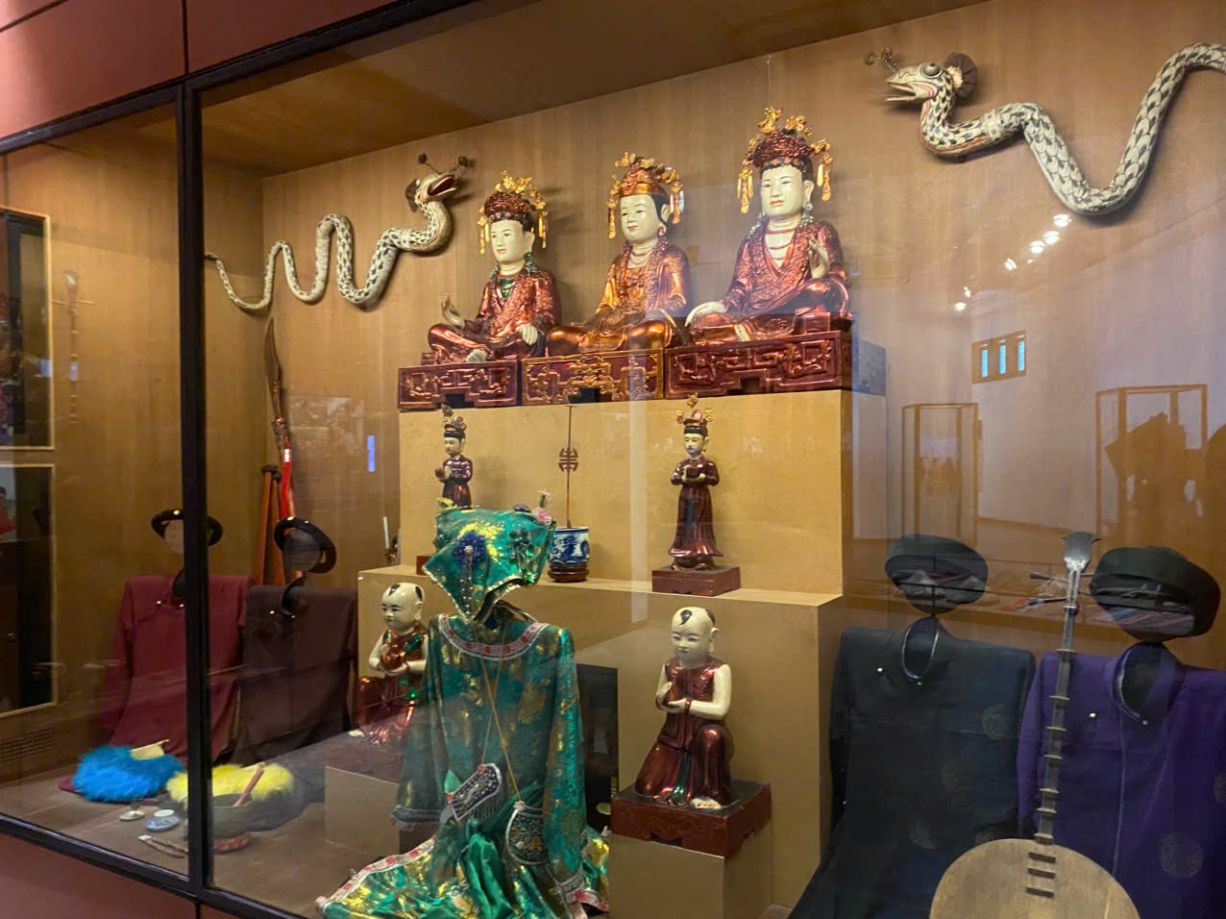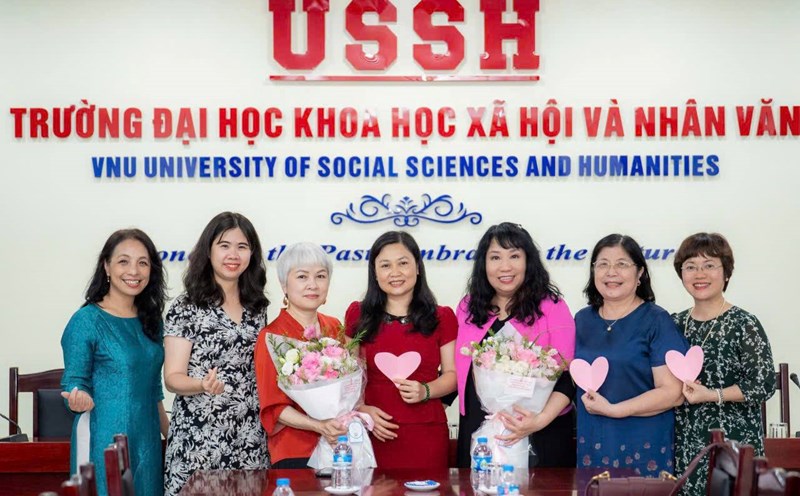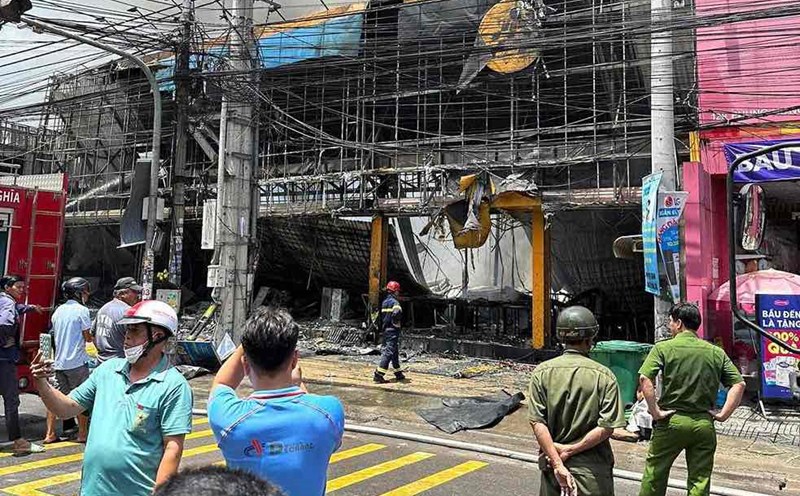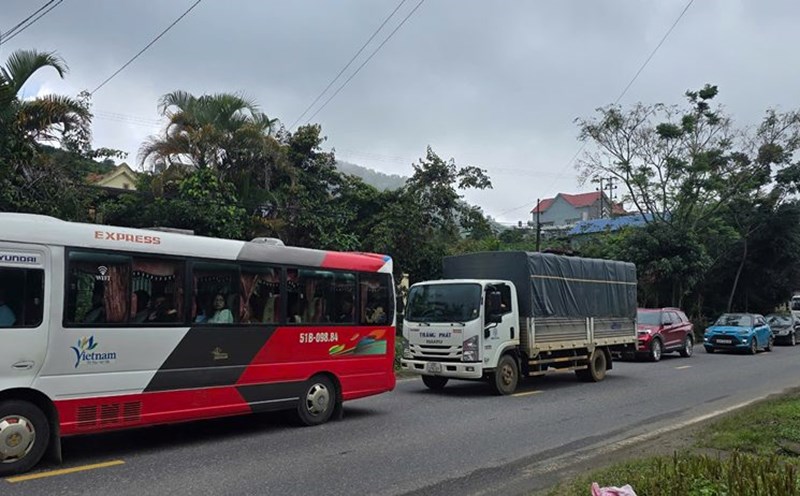When the mother is the center
The foundation of the mother is the center structure of this early commune system does not come from an existential philosophical concept, but comes directly from the method of agricultural production of rice and water.
In that economy, the role of women in farming, harvesting, and managing food holds a central position, deciding the survival of the community. It is this economic position that has created a corresponding social status, where women are respected and the patternal bloodline may have played an important role in determining the lineage.
Although it is impossible to confirm a true "matriarchy" regime according to Western anemia, where women hold full political power, it is undeniable that there is a strong "matriliny trend". Belief in the worship of the Mother, an intangible cultural heritage recognized by UNESCO, is the most beautiful proof when the image of the Holy Mother Lieu Hanh and the Mother gods who rule the sky, earth, rivers and mountains shows a vast universe in which, creative and protective energy originates from the Mother.
This heritage is also deeply imbued with the minds and expressed through the images of outstanding female heroes of the nation. The two Ba Trung women riding elephants went to the battle to raise the uprising flag with a oath: "A word, I would like to wash away the hateful water. Hai would like to bring back the old profession of the Hung family", not only to reclaim the ginger paint but also to want to restore the "old profession" - a social order in which, perhaps, the role of women is higher. Or Ms. Trieu with the affirming sentence: "I just want to ride strong winds, kick big waves, slash bighead fish in the East Sea, get back painted giang, build an independent foundation, free slavery, and not give up to follow in the footsteps of others! , has painted a model of an independent and brave woman.
Order, family tree and letters of encouragement
The decisive turning point to change this structure occurred when the Confucian ideology system from the North gradually took root and became the architectural Upper Lade of Vietnamese feudal society. The cradle, with a strict philosophical system of social order, has built a solid family stronghold. The focus of this value system is the word "Hieu". However, the word Hieu in the context of Confucianism is not only a matter of gratitude and love for parents, but an absolute political and social principle. It requires the subjection of children to their parents, of wives to husbands, of the subordinates to the superiors, forming a pyramid structure with the top being the king ("Child")).
In this citadel, the role of men, especially the eldest son, is placed in the center. He is the one who "watches the road", carries the burden of ancestor worship and maintains the longevity of the family. On the contrary, women are bound by "Tram Tong" (in the sub-kingdom, the excess price of the rich, the young master of the poor) and "Tu Vanh" (the common, the common, the spoke, the union).
However, it would be a mistake to only consider the Confucian family as an oppressor. In the context of an agricultural society that needs stability and collective strength, this model has had a great impact. It creates families with discipline, both top and bottom, attaching importance to moral education and community responsibility. The words "Hieu" and "Tree" have become a glue to connect members, creating a self-sufficient economic unit and a solid cultural stronghold to fight against foreign convergence.
Although the Hong Duc Code (Le Dynasty) has a Confucian ideology, there are also progressive provisions to protect women's rights (such as the right to inherit property), showing the cohesion and flexible adjustment of Vietnamese people when absorbing foreign culture, a testament to the mark of the modern system that has never been completely erased.

The Family Value System Revolution during the resistance war (1945 - 1975)
That seemingly invincible Confucian citadel has been shaken to its roots by a historical event stronger than a thousand years in the North: The resistance war for national independence in the 20th century. When the Fatherland is in danger, the concept of "National" is pushed to the top position, surpassing the whole "Family". The call "All for the front line, all for victory" has created a great value shift.
The word "Hieu" for parents and clans temporarily gave way to the word "Trung" for the Party and the country. Heriosity is now measured by dedication to the revolution. The image of mothers sending their children to the battlefield, the wife putting away her children's tears to help her husband feel secure in fighting became a beautiful symbol of the times.
The family relationship is no longer purely based on bloodline and Taoist ranks. Instead, a new, equally sacred relationship was born: the "comrade" relationship. Those who share the same strength and share the same strength and bullets have become a new family, a family connected by ideals and sacrifice. The family value system at this time is a special summary: patriotism is the highest dignity, sacrifice is the measure of love, and equality between men and women (though not complete) has become a requirement of revolutionary practice.
Family value system in the current context
When the war ended and the country entered the Doi Moi period in 1986, a new social creation began about the family value system. The door opens to the world not only to bring in investment capital and technology, but also new systems of ideas and lifestyles. Market economy and globalization have had a profound impact on the structure and value of Vietnamese households, creating a multidimensional, complex and controversial picture.
The shift from a collective agricultural economy to a multi-component market economy has promoted a strong urbanization process, leading to the instability of the nuclear family model (including parents and children). The family of three-digit, four-digit roadbeds, which were an ideal model of an agricultural society, has gradually become less popular, especially in big cities. Economic independence allows young couples to separate for personal life, leading to ease in their relationships with extended family and clan. The power of patriarchal families in the Confucian style has clearly declined. Instead, big decisions in the family are often based on discussion and agreement between husband and wife.
Individualism, a natural product of the market economy, is starting to seep into each family. Young people today value personal freedom, the right to choose their own career, partner and lifestyle. The relationship between parents and children has also changed. Instead of requiring absolute compliance, modern parents tend to "invest" in their children, focusing all resources so that their children have the best educational foundation, with the expectation of success and social status in the future. This sometimes creates an invisible pressure, turning love into a form of "investment project" full of expectations.
The role of women continues to have strong changes. They are increasingly educated, deeply involved in all areas of economic and social life and hold many important positions. Financial independence gives them a bigger voice in the family. However, the paradox is that they often have to bear the "double burden": having to strive in their careers while fulfilling their traditional role as the main caregiver for their families and children. The fight for gender equality is still taking place every day in every kitchen, every living room.
In addition, contemporary society also witnessed the appearance and increasingly recognized (albeit reserved) of non-traditional family models: single mothers, couples living together without marriage, same-sex families... The increasing divorce rate also shows a change in the concept of marriage: When people are no longer finding happiness and harmony, people are willing to choose an ending instead of being Aspirated as previous generations.
Important orientations of the Party
Faced with these profound and multidimensional changes, the Party and State of Vietnam have clearly recognized the importance of orienting and building a family value system in the new context. Instead of letting values develop spontaneously, many important documents and directives have been issued in recent years. Notably, Directive No. 06 - CT/TW dated June 24, 2021 of the Secretariat on "Strengthening the Party's leadership in family building in the new situation". This Directive emphasizes the building of a Vietnamese family "pleasant, progressive, happy, civilized", truly "the home of each person, a healthy cell of society". The core values are aimed at a harmonious combination of tradition and modernity. The phrase "plean of warmth and happiness" reminds us of the fundamental, eternal values of the family, while " Progress and civilization" are the requirements of the new era, including equality, respect, sharing and the ability to integrate.
Next, the "Vietnam Family Development Strategy to 2030" also sets specific goals on enhancing the role of families in educating ethics and lifestyle, preventing social evils and responding to challenges of the Fourth Industrial Revolution. These documents are not rigid impositions but an orientational effort, a "filter" to help Vietnamese families filter the quintessence of the past, selectively absorb the values of the times, in order to build a family model that is both environmentally sustainable and dynamic for development.
Today's Vietnamese family is no longer a closed citadel, nor an island playing in the midst of a globalized ocean. It is in a dynamic and challenging self-refication process. The future of Vietnamese families does not lie in choosing between traditional or modern, but lies in the ability to create a new harmony, where each member finds material prosperity, happiness in love, progress in thinking and civilization in behavior.










